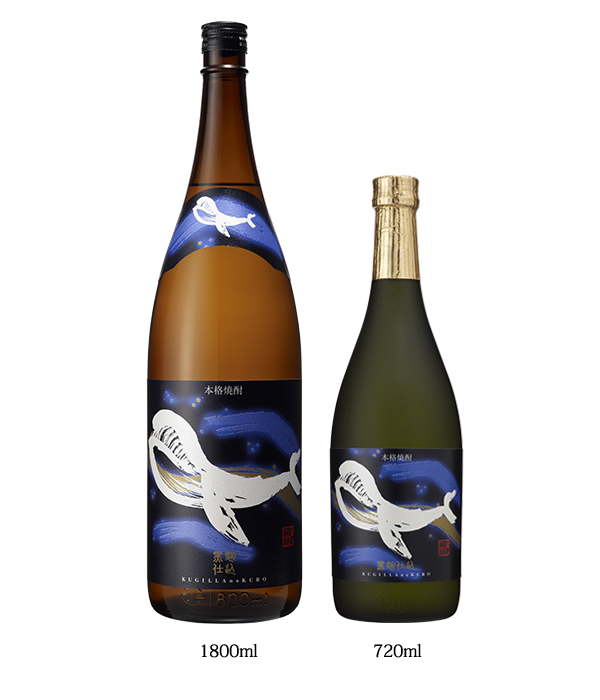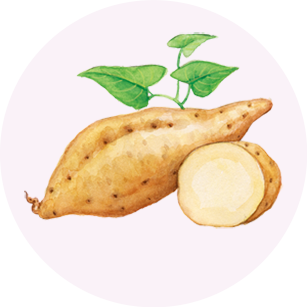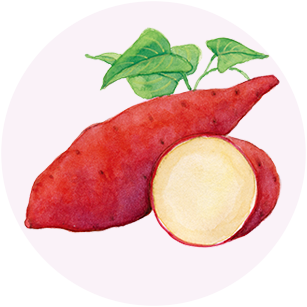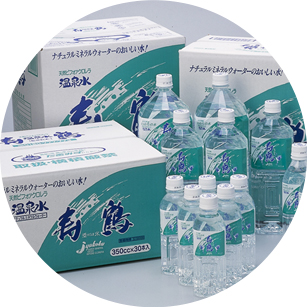Product Information
Sweet potato shōchū (standard)
Kujira Botoru Kuro-Kōji Shikomi(Whale Bottle Black Kōji)

A shōchū made using the kogane-sengan and beni-otome sweet potatoes distilled through atmosphere distillation. It has the fragrant aroma and sharp taste of the black kōji. Enjoy it on the rocks or mixed with hot water.
- Classification
- Authentic shōchū
- Alcohol volume
- 25%
- Ingredients
- Sweet potato (kogane-sengan/beni-otome), malted rice (produced in Japan)
- Kōji
- Black kōji
- Distillation method
- Atmosphere distillation
- Bottle
- 1800ml/720ml
Aroma/Taste scale

Drinking temperature

For the best drinking experience
About 10°C on the rocks or mixed with 40 to 50°C hot water.
Sweet potato
Kogane-sengan
The kogane-sengan sweet potato was created in 1966 and became shōchū’s main ingredient. These are versatile yellowish-white sweet potatoes with a great taste and high starch content widely used for many different purposes other than making shōchū. In Kagoshima Prefecture, almost half of the cultivated sweet potatoes are kogane-sengan.
Beni-otome
Easy to grow even at home, it has a beautiful red color, a gentle and uniform spindle shape making it suitable for baking and other edible purposes. Its skin is red while the inside is yellowish-white. The cut ends produce a large amount of jalapin, a white resin-like substance. In 1990, beni-otome was designated as a Kagoshima recommended variety.
Water used
Jukaku hot spring water
Sakurajima is one of Japan’s most active volcanoes.Looking up to it, is the city of Tarumizu where jukaku water gushes forth from 800m underground. It contains 8.89ppb (parts per billion) of water-soluble germanium which is a hundred times more than the average.
Water-soluble germanium can also be found in plants such as ginseng, reishi mushrooms, polypores, or garlic and has been used for the longest time to maintain health. Natural alkaline ionized water, jukaku, is also rich in natural minerals and is known to have excellent penetrating and extracting power due to its unusually small molecular structure.

LinkJukaku Web site


































